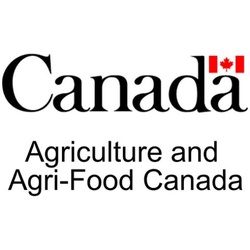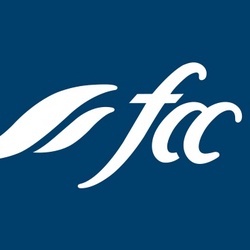
Closed
AgriScience Program – Clusters
Last Update: October 27, 2025
Canada
Funding for agricultural research and innovation collaboration
Researchers And Facilities
Partnering and Collaboration
Grant and Funding
At a glance
Funding available
Financing goals
Optimize production processes
Integrate new technologies
Research and experimental development
See more
Eligible Funding
- Maximum amount : 15,000,000 $
- Minimum amount : 5,000,000 $
- Up to 70% of project cost
Timeline
- Receipt of requests is now closed
Eligible candidates
Eligible Industries
- Agriculture, forestry, fishing and hunting
Location
- Canada
Legal structures
- Financial cooperative
- Non-profit
- Public or Parapublic institution
- Non-financial cooperative
Annual revenue
- All revenue ranges
Organisation size
- All organization sizes
Audience
- Indigenous Peoples
- Other Racialized Persons
- Canadians
- Youth (<40)
- Women
Non-profit candidates
Sector of operation
- Higher Education
- Research
- Environment
- Economic, Social and Community Development
- Business Associations
- Diversity and Inclusion
Target groups
- Indigenous peoples
- Rural / Remote communities
- Business owners / entrepreneurs
- Nonprofits / charities
- Academia / students
Revenue structures
- All structures
Scope
- Local
- Municipal
- Regional
- Provincial
- National
Overview
The AgriScience Program – Clusters provides up to $15 million over five years to support pre-commercial research and innovation activities in Canada’s agriculture and agri-food sector. Funding is available for activities such as applied research, development, and technology transfer, focusing on climate change, economic growth, and sector resilience.
Activities funded
- Collaborative research and development projects advancing applied agricultural science.
- Technology and knowledge transfer initiatives that support the adoption of innovative solutions in the agriculture sector.
- Industry-academic-government partnership projects addressing national priority themes such as climate change, economic growth, and sector resilience.
- Studies and activities focusing on greenhouse gas emissions reduction, carbon sequestration, and other environmental sustainability objectives.
- Projects supporting Indigenous knowledge and science priorities in agriculture, including new and traditional approaches to ecosystem management.
Examples of admissible projects:
$ 6,350,000
Smart irrigation pilots using sensor networks for arable fields
$ 7,450,000
Creation of agri-food waste valorization hub for circular economy
$ 5,850,000
Digital platform to transfer Indigenous land management knowledge to youth
$ 6,700,000
Climate-smart berry farming through renewable energy and monitoring
$ 8,500,000
Developing resilient pulse crop varieties for extreme weather conditions
$ 5,400,000
Testing cover crop blends for soil carbon sequestration benefits
Eligibility
- The applicant must be a not-for-profit organization (such as an association, corporation, cooperative, or Indigenous group).
- The organization must be a legal entity capable of entering into binding agreements.
- The project must align with at least one of the program's priority areas: climate change and environment, economic growth and development, or sector resilience and societal challenges.
- The applicant must consent to share a summary of their proposal with federal, provincial, and territorial governments.
Who is eligible?
- Not-for-profit organizations operating for purposes other than profit
- Industry associations and networks
- Corporations (not-for-profit)
- Cooperatives (not-for-profit)
- Indigenous groups
Who is not eligible
- For-profit companies and businesses (only not-for-profit organizations are eligible).
- Organizations that are not legal entities capable of entering into binding agreements.
- Applicants who do not consent to share a summary of their proposal with other government bodies.
- Entities with unpaid debts to the Government of Canada that have not been disclosed or resolved.
- Organizations failing to comply with the M-30 Act (for Quebec-based applicants only).
Eligible expenses
- Personnel salaries and benefits related to approved research activities.
- Purchase of equipment and materials required for research and development.
- Travel and accommodation expenses directly related to project execution.
- Costs associated with technology and knowledge transfer activities.
- Consulting and professional fees necessary for research or coordination.
- Costs linked to impact assessment, science coordination, and knowledge dissemination.
- In-kind contributions (up to 10% of total cost), when used as part of your cost-share.
Eligible geographic areas
- Organizations established in Canada
- Organizations based in Quebec (subject to compliance with the M-30 Law for Quebec applicants)
Selection criteria
- Scientific merit, including relevance, risk, feasibility, and impact of the research on the sector.
- Appropriateness of research methodology and experimental design, with peer review and response to feedback.
- Realistic timelines for achieving planned results.
- Organizational capacity, including technical, financial, and managerial abilities to manage research activities.
- Alignment with program funding principles: strategic value to Canada, whole value chain approach, measurable expected impacts, knowledge transfer, and quality of collaboration, diversity, and inclusion within the proposal.
How to apply
1
Review program details
- Review program objectives and components
- Assess funding options and cost-sharing requirements
- Understand eligible activities and costs
2
Check eligibility
- Verify eligibility as a not-for-profit organization
- Ensure activities align with priority areas
- Prepare to demonstrate legal capacity and willingness to share proposal summary
3
Prepare application materials
- Identify all sources of funding, including industry and other government support
- Compile required documentation and detailed budgets
- Ensure compliance with program, financial, and regulatory requirements, including Quebec's M-30 Act if applicable
4
Complete and assemble forms
- Request the application package from AAFC via the provided email
- Complete all required forms and gather necessary signatures
5
Submit application
- Submit your completed application package to AAFC by email
- Wait for acknowledgment notice confirming receipt
6
Await results
- Receive acknowledgment notice from AAFC
- Wait for approval or rejection within 100 business days
Additional information
- Intake periods for the program may open and close, so applicants should monitor for future opportunities.
- Applicants must demonstrate compliance with provincial legislation, such as Quebec's M-30 Act, if applicable.
- Acknowledgement of application receipt will be sent within one business day after submission.
- Service standards include a goal to respond to general inquiries and application acknowledgements within one business day.
Contacts
aafc.agriscienceprogram-programmeagri-science.aac@agr.gc.ca
1-877-246-4682
Canada
Apply to this program
Frequently Asked Questions about the AgriScience Program – Clusters Program
Here are answers to the most common questions about the AgriScience Program – Clusters. This section explains what the program is, how much funding is available, eligibility requirements, application deadlines, and other important details to help you determine if this grant is right for your business.
What is the AgriScience Program – Clusters?
How much funding can be received?
Who is eligible for the AgriScience Program – Clusters program?
What expenses are eligible under AgriScience Program – Clusters?
Who can I contact for more information about the AgriScience Program – Clusters?
Where is the AgriScience Program – Clusters available?
Is the AgriScience Program – Clusters a grant, loan, or tax credit?
Apply to this program
More programs like this

Grant and FundingOpen
AgriCompetitiveness Program
Agriculture and Agri-Food Canada (AAFC)Funding to build capacity in the agricultural sector

Loans and Capital investmentsOpen
Farm Equipment Financing
Farm Credit Canada (FCC)Financing for agricultural equipment

Loans and Capital investmentsOpen
Women Entrepreneur Program
Farm Credit Canada (FCC)Support for women in agriculture, agribusiness and food and beverage

Grant and FundingOpen
AgriAssurance Program – National Industry Association Component
Agriculture and Agri-Food Canada (AAFC)Supports industry-led assurance systems for Canadian agriculture exports

Grant and FundingClosed
African Swine Fever Industry Preparedness Program (ASFIPP) - Welfare Slaughter and Disposal Stream
Agriculture and Agri-Food Canada (AAFC)Supports pork sector preparedness for African swine fever emergencies

Grant and FundingClosed
AgriRisk Initiatives - Research and Development Contribution Funding
Agriculture and Agri-Food Canada (AAFC)Supports development of new agricultural risk management tools

Grant and FundingClosed
AgriRisk Initiatives - Microgrants Funding
Agriculture and Agri-Food Canada (AAFC)Supports development of innovative agricultural risk management solutions

Researchers And FacilitiesPartnering and CollaborationGrant and FundingOpen
AgriScience Program – Projects
Agriculture and Agri-Food Canada (AAFC)Supports innovative agricultural research to advance sector sustainability

Grant and FundingOpen
AgriInnovate Program
Agriculture and Agri-Food Canada (AAFC)Repayable contributions for agri-sector innovation projects

Grant and FundingClosed
ISED — Artificial intelligence (AI)
Innovation, Science and Economic Development Canada (ISED)Supports testing innovative AI prototypes for Canadian government needs
Sign up to our platform to access the AgriScience Program – Clusters information sheet for free
Get access to 4,000+ programs, practical guides, personalized alerts, and an AI assistant to support your grant applications.